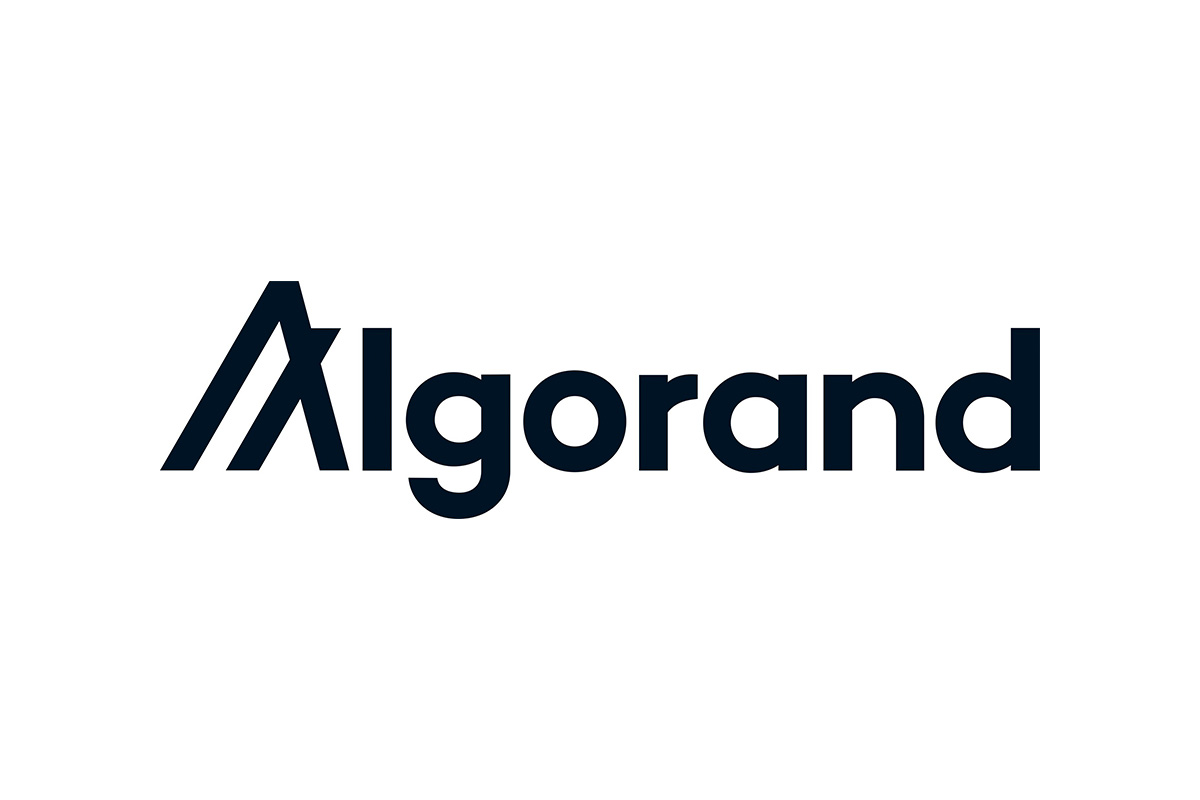Blockchain
Conflicting views on cryptocurrencies can confuse retail investors, notes Kalkine Media

Extreme price volatility alone isn’t the most defining aspect of blockchain-based digital currencies, which we usually refer to as cryptocurrencies. One aspect often overlooked by retail investors is the conflicting views of governments, regulatory bodies and private players on cryptocurrencies. No two countries or regulators seem to have an identical viewpoint on cryptos.
Developed countries have near-consensus – Cryptos are risky
Almost every high-ranking official and politician either vehemently opposes the rise of cryptocurrency investment or maintains a cautious silence. Senator Elizabeth Warren is a vocal critic of cryptos, and in the Senate hearing titled ‘Cryptocurrencies: What are they good for’, she spoke about the systemic risk of the space on the broader US economy.
SEC Chair Gary Gensler took a balanced approach when he spoke about cryptocurrencies at the Aspen Security Forum. Janet Yellen ripped into ‘extremely inefficient and volatile’ cryptos just a month after she took over as the Treasury Secretary.
Contradictory stance in emerging economies
Emerging economies matter more to investors than developed ones. Foreign institutional investors have been bullish on China and India to find an alternative to developed economies where growth has slowed.
China became the first major economy to outlaw cryptocurrencies. The People’s Bank of China has declared all crypto-related activities ‘illegal financial activities’. This effectively makes it a criminal offence in China to hold or trade or mine cryptos. Elsewhere, they remain unregulated but not unlawful.
Contrary to this, India has called a meeting of stakeholders to deliberate on cryptocurrencies’ opportunities and challenges. The Reserve Bank of India had banned crypto services offered by banks in 2018, a decision that the country’s Supreme Court upturned in 2020. The country’s finance ministry is also looking at ways to bring crypto trading under the tax ambit, and a bill in this regard may be presented soon.
In Indonesia, the country with the largest Muslim population, the leading religious council has called out cryptos as ‘haram’. In Brazil – a member of the BRICS grouping – a congressman has proposed a bill to legalize Bitcoin.
Multi-lateral meet on cryptocurrencies
The contradictory stance of various governments and regulatory authorities may confuse crypto investors, especially in the retail space. Any hostile announcement on cryptos by a specific economy deals a blow to the prices of crypto assets such as Bitcoin, which grabs the lion’s share of news headlines.
This makes a convincing case for a multi-lateral meet of both developed and emerging economies to find common ground. Trillions of dollars are locked in crypto assets, and any major upheaval can spill over into the wider financial world.
These contrasting developments in the cryptocurrency investment space can be daunting for retail investors, who often base decisions on market tailwinds. Much of the bull run in the crypto space was powered by retail investors in 2020 and 2021. Any widespread negative sentiment among this class might lead to an impulsive and heavy outflow of funds, and thereby a big correction in cryptos’ market value.
Blockchain
World Chess and the Algorand Foundation propose leveling the playing field with a “chess passport”

In a whitepaper published today, World Chess (LSE: CHSS) and the Algorand Foundation (ALGO) conceptualize a new blockchain-based system that would establish secure, private, and verifiable credentials for global sports organizations, including chess. Grandmaster Evgenij Miroshnichenko contributed to the paper alongside the Algorand Foundation and World Chess.
The move comes as interest in chess hits a new high, driven by popular television series on Netflix and the BBC, the 2024 awarding of the youngest-ever world chess champion, and the inclusion of chess for the first time in the Esports World Cup later this year.
If adopted, the system would allow chess players to independently manage their identity and credentials across all chess platforms and organizations with a single decentralized ID, and one login credential for everywhere they play. They could then easily “port” their identity, achievements, records of play, rankings, and rewards across online chess platforms, as well as seamlessly from the digital world to in-person games and tournaments. This provides them with a much easier way to prove their identity, no matter their status or documentation; it would also reduce tournament application times significantly. Chess organizations would then be able to welcome even more players to their competitions, including those who have built their chess career solely online, as well as players who have previously only competed in tournaments held by other organizations.
Among other benefits, the adoption of a “global chess passport” would make it much easier for organizers and chess clubs and federations alike to onboard and register players, both online and offline.
Another benefit of the proposed system is to safeguard fair play. As chess becomes increasingly integrated into e-sports and online competitions, the use of AI programs or player fraud (one player representing another) is an increasing concern. Being able to confirm player integrity (including whether they have been banned for cheating on any other platform) ensures credibility of chess contests and competitions. These verifiable credentials also preserve player privacy. They can be used to confirm player eligibility and relevant identity data without providing access to sensitive documentation, such as passports. Finally, identity verification also prevents fraud in tournament payouts. Phishing and other attempts to steal winnings are on the rise; this ensures only the rightful winner can access their prize funds.
“I think that chess needs its version of the global e-version of drivers license. It’s a global game, and using blockchain for the benefit of having one universal independently verifiable ID is something that both players and organizers will certainly benefit from,” says Ilya Merenzon, CEO of World Chess.
“This initiative is not just about chess; it’s about the future of fair play and verifiable achievement across all sports and esports,” said Bruno Martins, principal architect at the Algorand Foundation and co-author of the whitepaper. “Chess has a rich history of proving the usefulness of new technologies. In this case, World Chess is showing the integrity, privacy, and portability of records in any competitive arena is not only possible – it’s in the best interest of every player, everywhere.”
Statista estimates that the market for esports should reach $4.8 billion in 2025, with nearly 900 million players by 2029 (source), all of which could benefit from better cross-platform registration for online and in-person competitions.
The full whitepaper and more information about the proposed open-source system can be found here. Chess platforms, esports organizations and other parties interested in contributing to the project can get involved by contacting [email protected].
The post World Chess and the Algorand Foundation propose leveling the playing field with a “chess passport” appeared first on News, Events, Advertising Options.
Blockchain
Blaqclouds Board Approves 30-Day Revenue Acceleration and Ecosystem Monetization Plan
Blockchain
Blocks & Headlines: Today in Blockchain – April 23, 2025 – EDPB, Binance, MicroCloud, Nile Coin, TruaBroker

Welcome to Blocks & Headlines, your daily op-ed–style briefing on the most significant developments in blockchain technology and the cryptocurrency industry. Today’s dispatch spotlights landmark privacy guidelines from the European Data Protection Board, Malaysia’s engagement with Binance’s founder to turbocharge digital finance, a groundbreaking blockchain reconstruction solution from MicroCloud Hologram, the impending launch of Nile Coin on Solana by Hyperscale Data’s subsidiary BitNile.com, and Trua’s AI-driven TruaBroker compliance platform. These stories underscore how regulation, infrastructure innovation, token launches, and compliance automation are shaping Web3’s next chapter.
1. EU’s Privacy Guardrails: EDPB Proposes Blockchain Data Access Guidelines
Source: Decrypt
The European Data Protection Board (EDPB) has published draft guidelines aimed at reconciling blockchain’s immutable architecture with GDPR’s privacy mandates. Key directives include avoiding on-chain storage of personal data when it conflicts with Data Protection by Design and by Default, conducting Data Protection Impact Assessments (DPIAs) for high-risk processing, and implementing organizational and technical measures to limit default data access to an “indefinite number of persons” Decrypt.
Op-Ed Insight:These guidelines mark a pivotal moment. By mandating privacy-by-design and off-chain anchoring of sensitive information, the EDPB effectively pressures projects to adopt hybrid architectures—where on-chain transparency coexists with off-chain confidentiality. While defenders of pure decentralization decry potential censorship, privacy advocates hail these guardrails as essential to prevent authoritarian misuse of immutable ledgers. Ultimately, projects that bake data protection into their smart contracts and storage layers will secure both regulatory compliance and user trust.
2. Malaysia Taps Binance’s CZ for a Blockchain Finance Overhaul
Source: Bitcoin News
Malaysian Prime Minister Anwar Ibrahim has initiated high-level discussions with Changpeng Zhao (CZ), Binance’s founder and former CEO, to position Malaysia as Southeast Asia’s preeminent hub for tokenization and digital finance. The dialogue focuses on leveraging blockchain to modernize capital markets, streamline cross-border payments, and foster regulatory sandboxes that attract global Web3 startups Beamstart.
Op-Ed Insight: Engaging CZ signals Malaysia’s ambition to leapfrog legacy financial architectures by importing Binance’s exchange expertise and compliance playbooks. Yet success hinges on crafting balanced regulations that encourage innovation without compromising investor protection. If Malaysia can marry CZ’s technical insights with proactive oversight—such as clear licensing pathways for decentralized exchanges—it could catalyze a shift in regional capital flows from traditional finance hubs like Singapore to Kuala Lumpur.
3. MicroCloud Hologram’s VSS-Powered Blockchain Reconstruction Solution
Source: PR Newswire
MicroCloud Hologram Inc. (NASDAQ: HOLO) unveiled an innovative blockchain reconstruction solution that employs Verifiable Secret Sharing (VSS) technology to split and distribute private key shares across distributed nodes. Four core components—VSS-based key sharding, redundant node storage, dynamic participant verification, and incentive-driven reward/penalty mechanisms—enable rapid, trustless restoration of blockchain data integrity following attacks or node failures PR Newswire.
Op-Ed Insight: As DeFi and on-chain finance proliferate, uninterrupted availability and data consistency have become paramount. MicroCloud’s VSS approach transforms reconstruction from a centralized recovery process into a decentralized protocol, minimizing reliance on any single custodian. This paradigm could redefine disaster-recovery benchmarks: imagine an exploited smart contract whose state is instantly rebuilt through pre-sharded secrets, preserving transactional continuity without manual key escrow.
4. BitNile.com to Launch Nile Coin on Solana Blockchain
Source: GlobeNewswire
Hyperscale Data, Inc. (NYSE American: GPUS) announced that its social gaming subsidiary BitNile.com will launch Nile Coin on Solana on May 1, 2025. Solana’s high throughput and low fees position it as an optimal platform for BitNile’s gaming ecosystems, where Nile Coin will fuel in-game economies, reward completions, and facilitate peer-to-peer transactions. Further details on tokenomics and utility are expected in the coming weeks GlobeNewswire.
Op-Ed Insight: While new token launches are ubiquitous, Nile Coin’s Solana-native design leverages one of the fastest blockchains for scalable micro-transactions—a critical requirement for social gaming. Success will depend on robust token utility, partnership integrations, and community incentives. If BitNile.com can embed Nile Coin across multiple entertainment verticals (e-sports, virtual concerts, NFTs), it could ignite a network-effect flywheel, bolstering both user engagement and on-chain liquidity.
5. TruaBroker: Automating Compliance with AI-Powered Trust Credentials
Source: PR Newswire (via Benzinga)
Trua, a leader in digital trust credentials, launched TruaBroker , a cloud-based platform that automates compliance for broker-dealers and Registered Investment Advisors. Built on Trua’s patented Continuous Evaluation engine, TruaBroker delivers real-time monitoring of FINRA, SEC, and NFA records; identity verification; and continuous credential checks—all without IT integration. Its AI algorithms flag licensing gaps, disciplinary histories, and civil actions, enabling firms to maintain audit readiness and mitigate risk proactively Benzinga.
, a cloud-based platform that automates compliance for broker-dealers and Registered Investment Advisors. Built on Trua’s patented Continuous Evaluation engine, TruaBroker delivers real-time monitoring of FINRA, SEC, and NFA records; identity verification; and continuous credential checks—all without IT integration. Its AI algorithms flag licensing gaps, disciplinary histories, and civil actions, enabling firms to maintain audit readiness and mitigate risk proactively Benzinga.
Op-Ed Insight: In an era when on-chain transactions intersect with regulated financial activities, seamless compliance is non-negotiable. TruaBroker’s model—issuing reusable, verifiable digital credentials anchored by blockchain—offers a blueprint for how KYC/AML processes can evolve into dynamic, trustless workflows. As DeFi platforms eye tokenized securities and on-ramps, integrating similar continuous-evaluation mechanics could become a competitive differentiator, blending self-sovereign identity with regulatory assurance.
Conclusion
Today’s headlines illustrate blockchain’s multifaceted evolution: from regulatory frameworks enforcing privacy and consumer rights, to infrastructure innovations that ensure resilience; from national strategies enlisting industry titans to drive tokenization, to platform launches forging new digital economies; and from compliance automation transforming institutional trust to AI-powered credentialing.
As the space matures, successful projects will be those that:
-
Embed privacy and compliance by design—aligning with GDPR and global regulations.
-
Invest in self-healing architectures—leveraging cryptographic primitives like VSS.
-
Cultivate vibrant token ecosystems—anchored on high-performance chains.
-
Adopt continuous, AI-driven governance—bridging the gap between Web3 innovation and traditional financial oversight.
Stay tuned to Blocks & Headlines for incisive commentary and daily updates on the blockchain stories that shape tomorrow’s decentralized future.
The post Blocks & Headlines: Today in Blockchain – April 23, 2025 – EDPB, Binance, MicroCloud, Nile Coin, TruaBroker appeared first on News, Events, Advertising Options.
-

 Blockchain Press Releases5 days ago
Blockchain Press Releases5 days agoBybit’s CEO Meets with Vietnam’s Minister of Finance to Support Regulatory Sandbox and Strengthen Crypto Compliance
-
Blockchain6 days ago
Relm Insurance and Liva Insurance Obtain Central Bank Approval in the UAE for Web3 Insurance Solutions
-

 Blockchain6 days ago
Blockchain6 days agoGlobal Islamic Fintech Forum Kicks off in Dubai
-
Blockchain3 days ago
Islamic finance Market to Reach $3.4 Trillion by 2027 in the short run and $7.7 Trillion by 2033 Globally, at 12.0% CAGR: Allied Market Research
-

 Blockchain Press Releases6 days ago
Blockchain Press Releases6 days agoBybit launches Crypto Surf: Copy Traders and Bots Battle for 250K USDT
-

 Blockchain2 days ago
Blockchain2 days agoBlocks & Headlines: Today in Blockchain – April 22, 2025 (Activity‑Weighted Consensus, Pectra Upgrade, Yoki Legacy, Verae–Evercycle, Earth Day)
-

 Blockchain Press Releases6 days ago
Blockchain Press Releases6 days agoMEXC Announces Listing of Initia (INIT) with a 115,000 INIT and 50,000 USDT Prize Pool
-

 Blockchain7 days ago
Blockchain7 days agoValuit: Revolutionizing Access to Private Markets in the Digital Economy






































